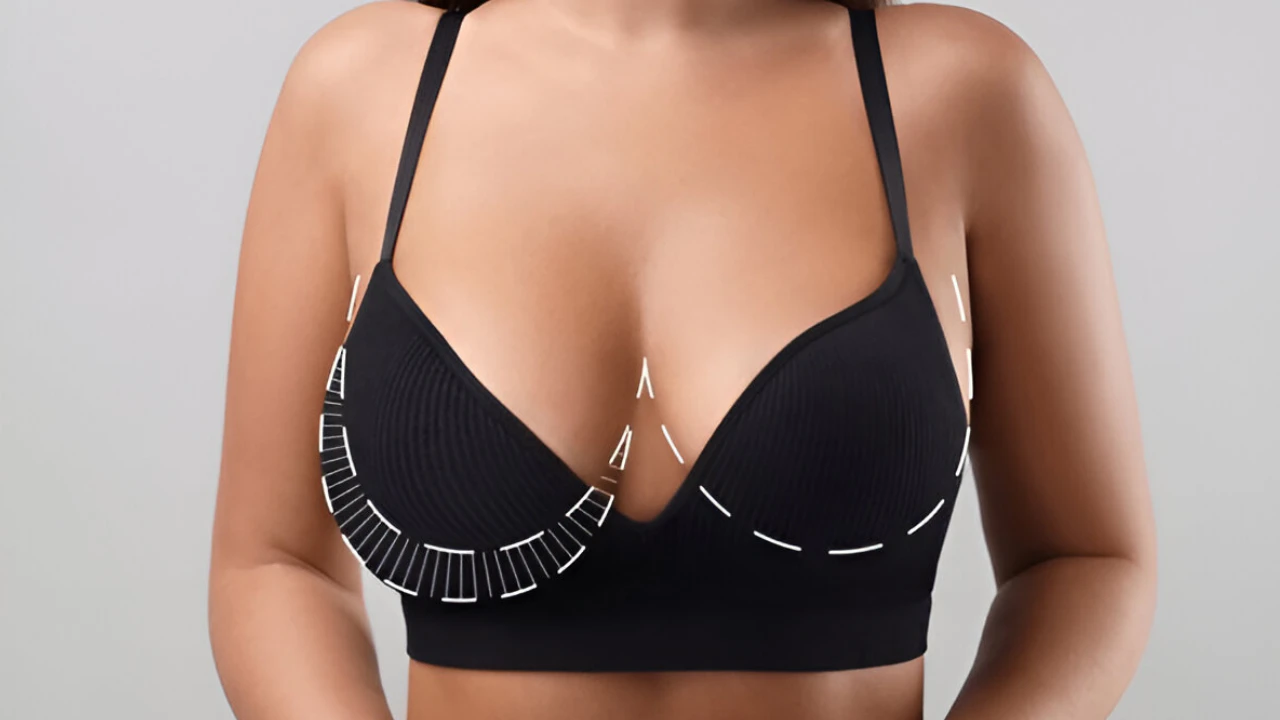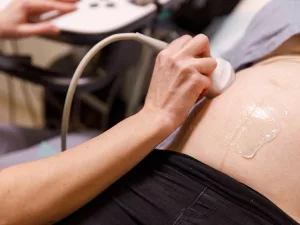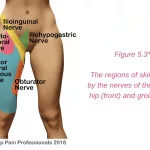Hello, my friend! So, is it true that there is breast reduction surgery in your mind now, but you keep looking at the ceiling at night thinking about the costs and maybe Medicare could help you? I can fully understand you—those sorts of questions may appear to be unanswerable like attempting to put pieces of a puzzle together without those pieces lost. Anyway, don’t beat yourself up. I will come by your side to simplify all matters and work things out with you. We will be talking about various aspects, such as what exactly is breast reduction surgery, the likelihood of Medicare covering it, its expenses, and any necessary steps in case you are contemplating it. By then, everything will be like a game to you where you have a map with which to follow your guide. Now, take your time, sit back, and do talk to me:)
Understanding Breast Reduction Surgery
It’s going to be the basics, I guess. What’s really breast reduction surgery? I swear to you that I won’t be going all technical. Honestly, it’s very easy. Consider your breasts as being really heavy bags of groceries that you have to carry around the whole day. If a woman thinks her breasts are too big and are affecting her health or self-image she could consult a doctor to get breast reduction. A breast reduction surgery is when a surgeon removes the extra tissue, fat, and skin and creates a new shape and size that are proportionate to the body and more importantly, in-line with the body and the individuals’ personal taste. It’s not just about how you look (although it can be an added advantage!); it’s about how you feel. Well, the fact is, guys, it could make a big difference.
What’s It All About?
Picture this: You wake up every morning with an ache in your back or a crick in your neck that just won’t quit. Maybe you’ve even got grooves in your shoulders from bra straps digging in like they’re staging a sit-in. Breast reduction surgery is like hitting the reset button—it lightens the load, literally. It can help with physical stuff like pain and posture, but it’s also about giving you a chance to move through life a little easier. Have you ever thought about how freeing that might feel?
Who Might Need It?
So, who’s this surgery for? If you’re bobbing your head in agreement because you have back pain, neck pain, skin rashes, and so on that actually hurt you this might be it.Capital I mean how? Not just for those who would like to artificially modify their look but people that could save their living by getting rid of big breasts. If you’ve felt too uncomfortable to the point where you have ever given the thought of skipping a workout, or even you’ve fought to find a bra that does not make you feel like a torture victim, then you are likely experiencing this. It’s so annoying, isn’t it? If, yes, it does then you are in the majority, and this could be the direction for the journey that you need to take.
The Perks—Oh, They’re Good!
Now, let’s talk about the fun part—the benefits. Imagine slipping out of bed without that familiar ache nagging at you. Or picture yourself lacing up your sneakers and going for a run without feeling like your chest is staging a rebellion. That’s what breast reduction can do. Physically, it’s like lifting a weight off your shoulders (pun intended!). Emotionally, it’s a confidence boost—like finally wearing that cute dress you’ve been eyeing without worrying about how it fits up top. People I’ve talked to say it’s like rediscovering themselves. How amazing would that feel for you?
But What About the Risks?
Okay, I’d be a lousy friend if I didn’t mention the flip side. Like any surgery, breast reduction has some risks—think infection, scarring, or maybe a change in how your nipples feel.
➤ Learn more about sore nipples and potential causes. Check out Why Are My Nipples Sore to Touch? 9 Causes Explained.
Recovery isn’t a walk in the park either; it takes time to heal. But here’s the thing: It’s all about balance. You’ve got to weigh those risks against the relief you might get. Chat with a surgeon you trust, ask all the questions swirling in your head, and take it at your pace. You deserve to feel good about whatever you decide.
Will Medicare Cover Breast Reduction Surgery?

Alright, let’s get to the million-dollar question—or at least the several-thousand-dollar one: Does Medicare cover this? I know you’re probably crossing your fingers for a “yes,” so let’s dig in and see what’s what.
Cosmetic vs. Medically Necessary—What’s the Deal?
Here’s the scoop: Medicare’s pretty picky. If you’re getting breast reduction just to rock a new look, they’re likely to say, “Sorry, not our thing.” Cosmetic stuff isn’t their jam. But—and this is where hope sneaks in—if your large breasts are causing legit health problems, Medicare might step up. We’re talking “medically necessary” territory here. So, if your back’s screaming or your skin’s a mess because of the weight, you might have a shot. Isn’t it wild how much that distinction matters?
What Conditions Might Get the Green Light?
Let’s get specific—because details are our friends. Medicare might cover your surgery if you’re dealing with stuff like:
- Chronic pain in your back, neck, or shoulders that just won’t quit.
- Skin infections or rashes under your breasts that keep coming back.
- Nerve issues or slouchy posture from carrying that extra weight.
If any of that rings a bell, you could be on the right track. I heard about a gal once who’d been battling back pain for years—she finally got Medicare to say yes, and it was a game-changer. Could that be you someday?
Papers, Please: Proving It’s Necessary
Now, Medicare isn’t just going to take your word for it—they need proof. Think of it like building a case for why you deserve this. Your doctor’s got to bring the goods: medical records, maybe some photos, and evidence you’ve tried other fixes (like physical therapy) for at least six months without luck. It’s a bit of a hassle, I know, but it’s worth it if it gets you closer to relief. You’re tougher than you think—gathering this stuff is just one more way to show it.
A Little Story to Brighten Your Day
Want a real-life boost? I once chatted with someone who’d been in your shoes—let’s call her Jen. She’d been lugging around back pain like a stubborn suitcase for years. After months of doctor visits, a pile of paperwork, and a little persistence, she got Medicare to cover her surgery. She told me it was like someone flipped a switch—suddenly, she could move without wincing. Hearing that gave me goosebumps. What if that could be your story too?
How Much Does Breast Reduction Surgery Cost?

Alright, let’s talk dollars and cents—because I know you’re wondering, “How much do breast reductions cost?” It’s a big piece of the puzzle, so let’s lay it all out on the table.
The Average Price Tag
Here’s the starting point: “According to the American Society of Plastic Surgeons, the fee of the surgeon is at an average of $7,800.” However, to say that is not the whole fact. Anesthetists and the facility where the operation is held are only some of the expenses. When you total everything, the bill can be as low as $4,000 or as high as over $15,000. It is very much like a highway, to be honest, the range is so wide, but it all depends on a lot of names crazy, isn’t it? Pardon me to say this but I don’t feel like driving now.
What Makes the Cost Bounce Around?
So, why the big gap? Let’s break it down like we’re splitting a pizza.
Surgeon’s Fees
A top-notch surgeon might charge more—like paying extra for a chef who makes the best pasta. You’re investing in skill, and that’s worth it for something this important.
Anesthesia Fees
This part’s like the side dish you didn’t expect to pay for—it can tack on $1,000 to $2,000, depending on how long you’re under.
Facility Fees
Where the surgery happens matters. A fancy hospital in a big city might cost more than a smaller clinic somewhere quieter.
Where You Live
Location’s a sneaky one. Surgery in New York might hit your wallet harder than in, say, Ohio. Curious about your state? Below is the latest update table of the Cost of breast reduction surgery by state.
This is an estimated benefit amount. Actual coverage depends on the services listed on your itemized bill, such as a different pain prescription, walking aid, or additional imaging, which may affect the final reimbursement.
| State | Avg Cash Price (Outpatient Hospital) | Avg Cash Price (Surgery Center) |
|---|---|---|
| Alabama | $8,456 | $4,902 |
| Alaska | $11,442 | $6,633 |
| Arizona | $9,569 | $5,547 |
| Arkansas | $8,383 | $4,859 |
| California | $10,502 | $6,088 |
| Colorado | $9,244 | $5,358 |
| Connecticut | $10,114 | $5,863 |
| Delaware | $9,828 | $5,697 |
| District of Columbia | $9,742 | $5,647 |
| Florida | $9,285 | $5,382 |
| Georgia | $8,703 | $5,045 |
| Hawaii | $8,803 | $5,103 |
| Idaho | $8,553 | $4,958 |
| Illinois | $9,707 | $5,627 |
| Indiana | $8,855 | $5,133 |
| Iowa | $8,049 | $4,666 |
| Kansas | $8,335 | $4,831 |
| Kentucky | $8,528 | $4,944 |
| Louisiana | $9,463 | $5,486 |
| Maine | $8,549 | $4,956 |
| Maryland | $10,065 | $5,835 |
| Massachusetts | $10,372 | $6,013 |
| Michigan | $9,554 | $5,538 |
| Minnesota | $10,753 | $6,234 |
| Mississippi | $8,601 | $4,986 |
| Missouri | $8,499 | $4,927 |
| Montana | $8,843 | $5,126 |
| Nebraska | $8,642 | $5,010 |
| Nevada | $9,130 | $5,293 |
| New Hampshire | $9,158 | $5,309 |
| New Jersey | $11,095 | $6,431 |
| New Mexico | $8,431 | $4,887 |
| New York | $10,439 | $6,051 |
| North Carolina | $8,379 | $4,857 |
| North Dakota | $9,310 | $5,397 |
| Ohio | $8,712 | $5,050 |
| Oklahoma | $9,323 | $5,404 |
| Oregon | $9,510 | $5,512 |
| Pennsylvania | $9,814 | $5,689 |
| Rhode Island | $10,461 | $6,064 |
| South Carolina | $8,928 | $5,176 |
| South Dakota | $8,319 | $4,822 |
| Tennessee | $8,391 | $4,864 |
| Texas | $9,068 | $5,256 |
| Utah | $9,450 | $5,478 |
| Vermont | $9,277 | $5,378 |
| Virginia | $9,024 | $5,231 |
| Washington | $10,066 | $5,835 |
| West Virginia | $9,031 | $5,235 |
| Wisconsin | $9,532 | $5,526 |
| Wyoming | $9,280 | $5,379 |
How Tricky It Gets
If your surgery’s more complex—like needing extra steps—it could bump up the price. Every body’s different, so your cost is as unique as you are.
What Happens If Medicare Chips In?
If Medicare covers you, it’s like getting a coupon—sweet, right? You’ll still pay a deductible (think around $1,676 in 2025) and about 20% of the rest as coinsurance. It’s not free, but it can slice your bill down big-time. Could that make this doable for you?
Don’t Forget the Extras
Oh, and there’s more! Pre-op tests, meds, special bras for recovery, and follow-up visits—they’re like the popcorn and soda at the movies. Not the main event, but they add up. Budgeting for them now means no surprises later. Smart, huh?
Steps to Take If You’re Thinking About It

So, you’re leaning toward this—what’s next? Don’t worry, I’ve got your back with some simple steps to get you started.
Chat with a Surgeon
First up, find a board-certified plastic surgeon—someone who’s done this a bunch and knows their stuff. Book a consult, ask a million questions, and see if you vibe with them. This is your journey; you want a guide you trust.
Loop in Your Regular Doc
Your primary care doctor’s your MVP here. They can refer you to a surgeon and help build that Medicare case with all the right paperwork. It’s like having a teammate cheering you on.
Double-Check with Medicare
Before you dive in, call Medicare or poke around Medicare official website— is a good start. Make sure your situation fits their rules. Knowledge is power, right?
Got a Plan B?
If Medicare says no, don’t panic. Lots of surgeons offer payment plans, and there are medical loans out there too. GoodRx has some awesome tips on saving. You’ve got options—we’ll find a way!
Wrapping It Up
So, here we are at the end of our chat. Breast reduction surgery could be your ticket to ditching that pain and feeling like yourself again. Medicare might cover it if it’s medically necessary, but you’ll need to show them why. Costs can range from $4,000 to $15,000+, though Medicare could lighten the load if you qualify. It’s a lot to take in, I know, but you’re tougher than you think.
If this feels right for you, start with a surgeon or your doctor, and check with Medicare. You deserve to wake up without that weight—figuratively and literally. What do you think—ready to take that first step? If you’ve got questions or just want to spill your thoughts, drop a comment below. I’d love to hear from you—we’re in this together!

























Leave a Reply
You must be logged in to post a comment.